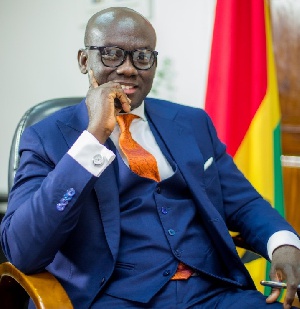Opinions of Sunday, 17 May 2009
Columnist: Cudjoe, Franklin
Has Ghana Lost 5 Years of her Development, or What?*
The current confusion about the long-term development strategy guiding policymaking is deeply worrying, and more so given the apathy that is being shown the subject by civil society.
Yet, as we have had cause to say before, development strategies, and the plans that articulate them, are the basis upon which financing is attracted to the crucial projects and programs that will improve living standards, reduce poverty and deprivation rates, and transform our environment through investment in infrastructure, governance, and social services.
This year the current phase of the GPRS II (Growth & Poverty Reduction Strategy II) will draw to a close, and this country will be required to announce a successor short-term program, to cover the period from 2009 to 2012. But what will be the long term guide for this shorter-term program? Given that the GPRS process has become so thoroughly embedded in the 2015 agenda that has now been abrogated, will our short to medium term plans be based on a totally new arrangement with “development partners”, civil society and the technocrats at the NDPC and elsewhere, or what?
The point is that for the Vision 2020 framework to supplant the 2015 agenda, some serious work needs to be done to realign the existing donor-funded and Government of Ghana multi-year projects away from their current 2015 bias to the proposed 2020 guidepost. Recall also that the target date for the Millennium Development Goals is 2015.
The funny thing is that the original Vision 2020 program, of the previous NDC era, had anticipated that Ghana will attain middle-income status (¬$1000) by 2010 and enter the “upper middle income” bracket ($4000) by 2020, so the new Vision 2020 is definitely not the same as the familiar one of yesteryear, which again strongly recommends that extensive work begins immediately to design a long-term plan that is more consistent with current realities.
Or might we be better off with a revolving long-term plan that embodies the best elements of both the 2015 and 2020 agenda? That is to say, should we declare goals for 2010, 2015, 2020 and perhaps 2025 in a unified pattern such that each set of 5-year goals feed into the next 5-year period? Such a “compromise” may be worth a look since it is not clear that the two major political parties have ceded any space to each other in the “battle of plans” and, given their almost equal electoral footing, this could be taken to imply that the nation is torn asunder rather than united by a common vision of progress.
This dilemma is not merely academic.
A lack of clarity about the nation’s development agenda should necessarily increase the local risk premium for external actors. Whether we are talking about multilateral or bilateral “development partners”, or about investors with sovereign-level dealings with Ghana, or ordinary overseas-based business people interested in putting money into Ghanaian ventures, our concern should be that they do not perceive our country as a risky place to do business, in comparison with regional competitors.
A government’s “development paradigm” informs its macroeconomic focuses, its private sector development strategy, its posture to taxation and tariffs, and its orientation to financial liberation matters, such as the liberalisation of the capital account, profit repatriation, business-related immigration, and of course public debt management, among others. These matters are crucial to serious investors considering Ghana as a destination for serious investment.
If there is a lack of clarity about what the development consensus is, and political parties are focussed solely on throwing accusations of “economic mismanagement” at each other, then you can bet that in the view of external actors who invest in our country or trade with us, and for who “Ghana”, rather than “NPP” or “NDC”, is the unit of relevance, the country is “going nowhere”.
Without an early resolution to the current confusion about the 2015/2020 guideposts, many people are going to be scratching their heads over what the real national direction is, and will keep asking whether we “have lost or gained 5 years” in our developmental journey. Who can blame them? *
Compliments of IMANI, your friendly local think tank in association with www.AfricanLiberty.org












